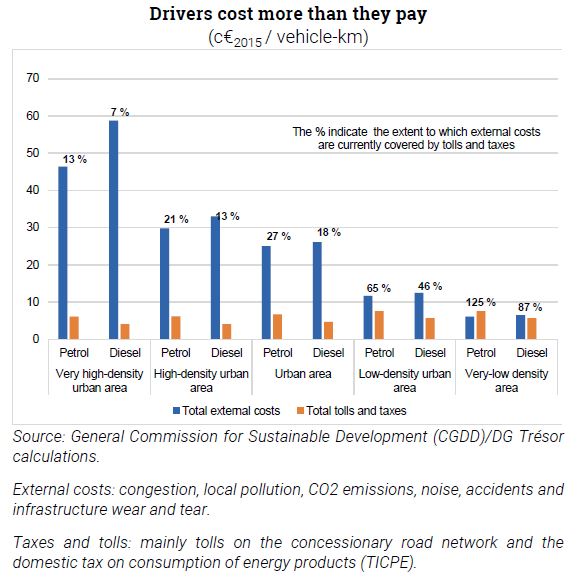Trésor-Economics No. 224 - Lessons from foreign urban charging schemes
Car use generates costs for society in terms of greenhouse gas emissions, traffic jams and air pollution. In order to ensure economic efficiency, the cost of driving for car users should reflect these external costs alongside private costs (car purchase, repairs and fuel). This is currently not the case in France where, most of the time, car users do not pay for the social cost of their rides. This is especially true in urban areas where congestion is the heaviest and where more people are affected by local pollution. This leads to an overuse of cars and a reduced wellbeing for the community.
With the aim to offsetting the under-pricing of car use in densely-populated urban areas, various cities around the world such as Singapore, Stockholm, Gothenburg, London, Rome and Milan have introduced congestion charges. Several studies conducted in London and Stockholm show that the implementation of such urban charging schemes can reduce both traffic jams and pollution levels.
These foreign experiments have revealed that urban charging schemes must fulfil a number of conditions in order to be effective. These include using in-vehicle technologies, limiting their implementation to highly populated areas, charging schemes not being time-bound so as to ensure financial and socioeconomic return on investment, a transparent price grid for car users without any exemptions and, lastly, improving the public transport system.
Several measures can foster the acceptance of urban charging schemes by the population, such as information campaigns displaying the reduction in congestion and pollution enabled by those schemes, government subsidies for in-vehicle equipment (insofar as the public cost is reasonable), and social measures for low-income households.
Article 65 of the French Grenelle 2 Act allows the implementation of urban tolls by French local authorities. However, they are limited to three years, a maximum duration that seems way too short for recouping the cost of the investments, which explains in a large part why cities in France have not yet implemented urban charges.
